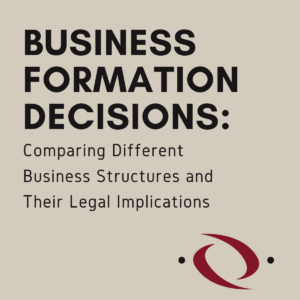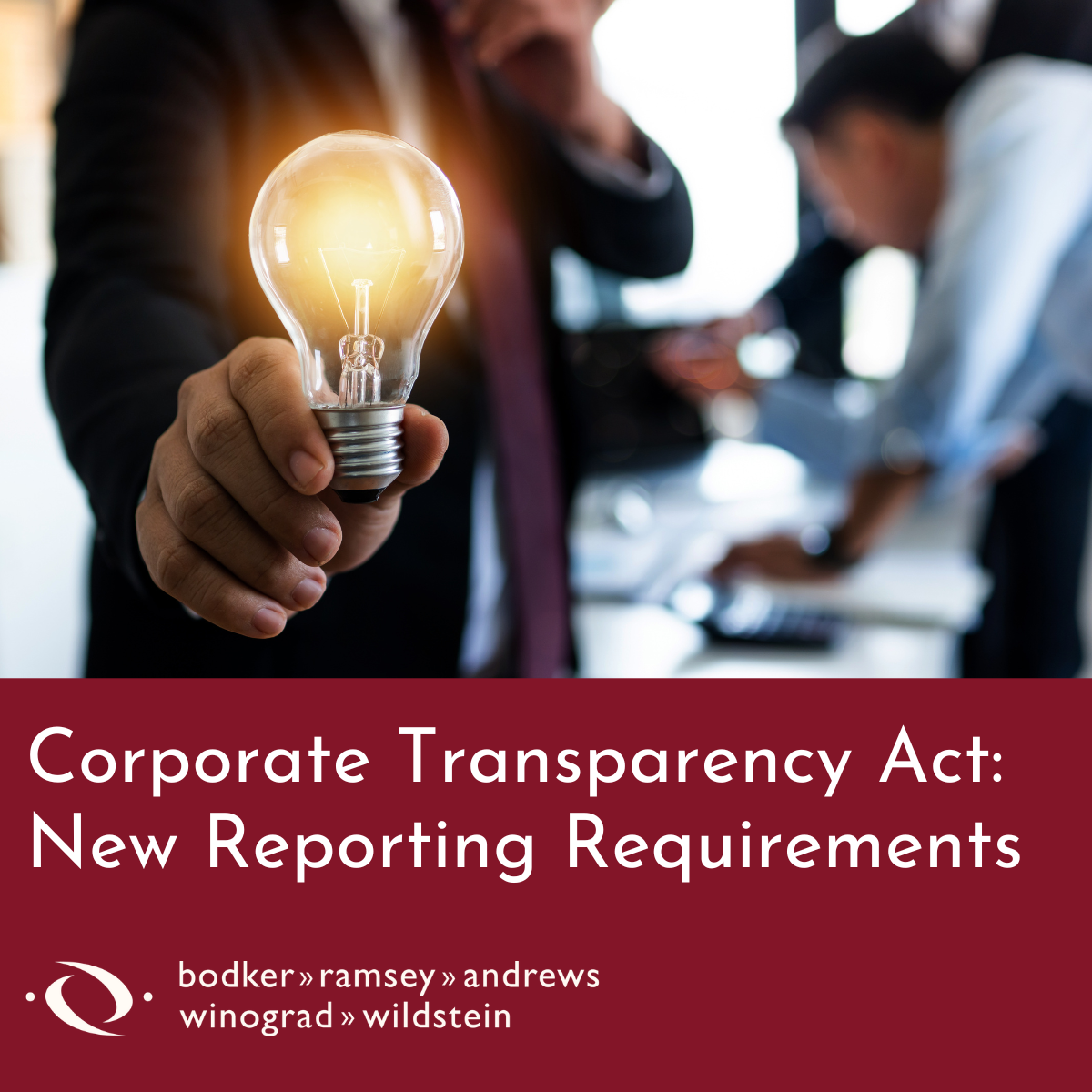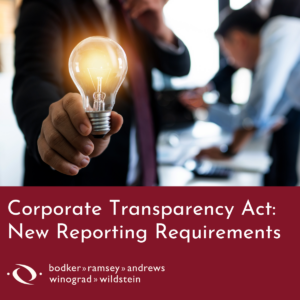Business Formation Decisions: Comparing Different Business Structures and Their Legal Implications
Starting a business involves making crucial decisions, one of which is selecting the right business structure. This choice can significantly impact your business operations, legal protections, and tax obligations. Below is a quick guide to help you understand the options available and their respective legal ramifications. As always, these decisions are nuanced and require careful consideration. Our BRAWW corporate attorneys can guide you on the business form ation that is right for you and your business.
ation that is right for you and your business.
Sole Proprietorship: Ideal for individual entrepreneurs, this structure is straightforward but comes with personal liability for business debts. Its simplicity makes it a popular choice for many starting their business journey.
Partnership: A partnership involves two or more individuals sharing responsibilities, profits, and liabilities. It’s vital to have a partnership agreement in place to outline each partner’s role and protect all parties involved.
Corporation (C-Corp): This structure offers limited liability protection, separating personal assets from business liabilities. However, it involves more complex regulations and potential double taxation, as both the corporation and the shareholders are taxed.
S Corporation: An S-Corp provides similar protections to a C-Corp but with different tax benefits. Profits and losses can pass through to your personal tax return, avoiding double taxation. However, it has limitations on the number and type of shareholders.
Limited Liability Company (LLC): Combining elements of partnerships and corporations, LLCs offer flexibility, limited liability, and various tax options. They are preferred for their less stringent operational requirements compared to a corporation.
Each structure has its unique features, benefits, and legal implications. Your choice should align with your business goals, operational style, and risk tolerance. Remember, the right foundation can set your business up for success.
Read More
Get Ready: New Reporting Requirements under the Corporate Transparency Act
 By Amit Patel
By Amit Patel
Effective January 1, 2024, almost every small business will be required to submit an information return to the government. A new rule under the Corporate Transparency Act of 2019 requires most companies operating in the U.S. to submit a report as to “beneficial ownership” to the U.S. Treasury’s Financial Crimes Enforcement Network (FinCEN). With limited exceptions, the disclosures required by the rule applies to both new and existing business entities.
“Beneficial ownership” includes any individual who, directly or indirectly, owns twenty-five percent (25.0%) or more of the ownership interest in a company. It also includes any individual who exercises substantial control over the company. “Substantial Control” includes any senior officer of the company, anyone who has authority over the appointment or removal of any senior officer or a majority of the board of directors of the company, anyone who has substantial influence over important decisions by the company, or anyone who has any other form of substantial control.
Who Needs to Report?
The rule applies to entities like:
- Corporations
- Limited liability companies
- Limited liability partnerships
What Information is Required?
The reporting requirements for each Beneficial Owner include:
- Full legal name
- Date of birth
- Current address
- Unique identifying number (e.g., passport or social security)
- Document image (drivers license or passport) containing the unique identifying number
When to File?
Companies created before January 1, 2024, have until January 1, 2025, to file initial reports. New companies formed after January 1 must file within 30 days of company creation. If there are changes during the year, updated reports must be filed within 30 days.
How Can We Help?
Bodker, Ramsey, Andrews, Winograd & Wildstein P.C. can help minimize your legal risk and maintain your entity’s reputation. We offer support at every step, including:
- Determining Reporting Company status
- Identifying beneficial owners
- Preparing for the Corporate Transparency Act implementation
- Training compliance and operations teams
Contact a member of our Corporate and Transactional Practice to ensure your compliance with the Corporate Transparency Act’s beneficial ownership reporting requirements.
Read More
